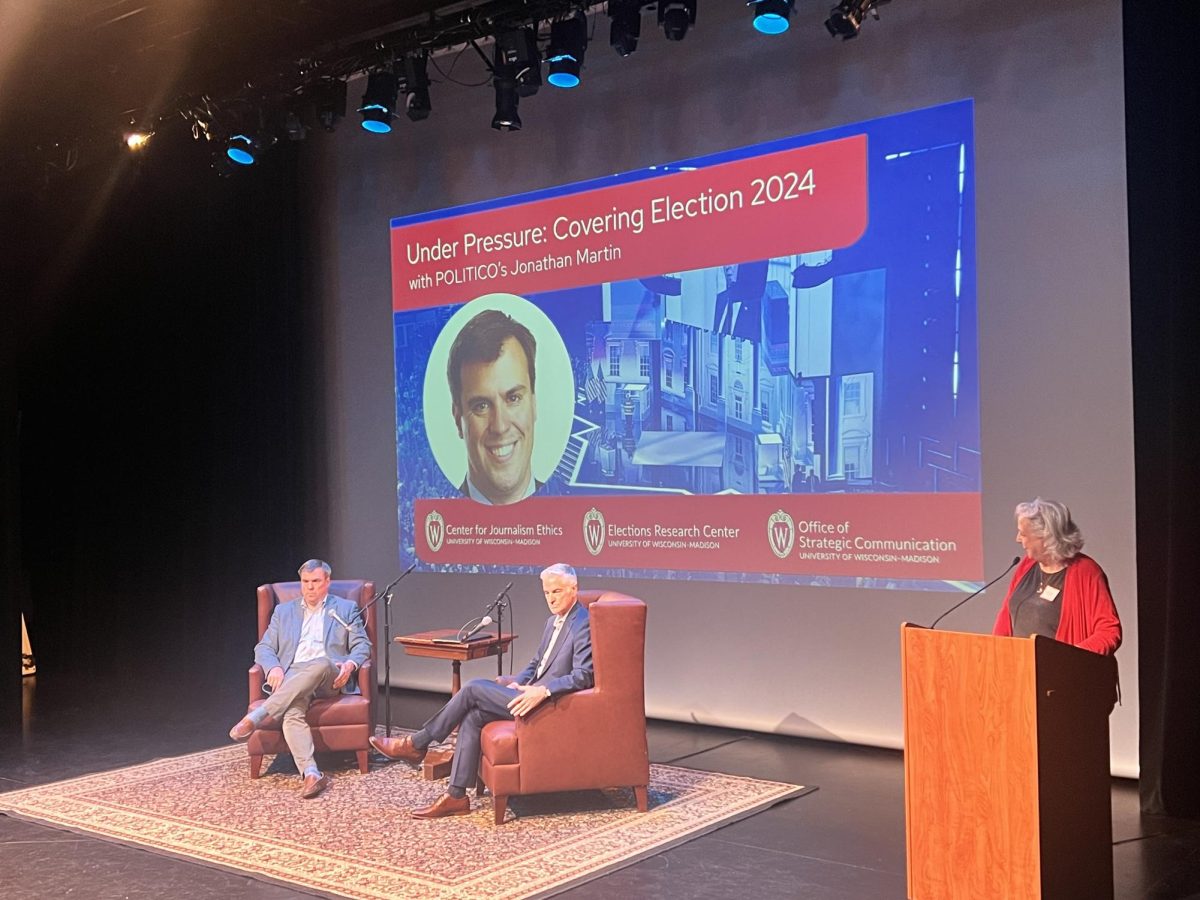Keeping up with the pace of technology is no easy task, as computers and other electronics become smaller and faster more quickly than ever.
Some individuals have the ability to closely follow the accelerated progress. Many University of Wisconsin students walk to class toting iPods, take lecture notes on laptop computers and post photos from their digital cameras using the Internet.
However, expecting the university as a whole to stay as current with modern technology as some of its students is not realistic. Not only does UW have other things to commit funds to — faculty, scholarships and athletics, among many other things — but the university must also keep its education accessible to everyone. This predicament makes it difficult for the university to be entirely up-to-date technologically, despite its best efforts.
"We have to wait for the right time to expand," said Brian Rust, senior administrative program specialist for the UW Division of Information Technology. "We have to test it out before we can make a real effort to bring something new in."
It's like a migrating herd of wildebeests chasing storm clouds during rainy season in the Serengeti. Alone, one wildebeest would be able to keep up with the clouds' pace much better than the herd. But the herd moves steadily, allowing the young to keep up and protecting the group predators. And by the time the herd reaches an oasis, the storm is long past.
The storm cloud of technologically is currently moving at a blistering pace, and while some of the students — individual wildebeests — have been able to keep up, the UW herd is steadily making progress to stay on pace.
UW has nearly reached the oasis in its wireless Internet efforts, has made noticeable changes to its website, and is taking the initial steps in the journey to the Mara to bring podcasting to campus.
iPodcasting
Perhaps nothing illustrates the rapid drifting of technology better than the evolution of the iPod.
Since its launch in October 2001, the popularity of the iPod has soared, and as a result, the design of the actual product has changed. Spawned from the original model has come the mini, the nano and the shuffle. The material available on the iPod has also grown and has expanded to the academic world.
Professors at universities nationwide podcast lectures or make other course materials available for students via podcast. Stanford University, Duke University, Purdue University and the University of Missouri are among the universities utilizing such technology.
While UW professors are nowhere near the point where lectures are available for download, some have begun to podcast or use course-related podcasts as supplementary course material.
According to Rust, approximately 100 professors at UW are involved in a podcasting program. In 2003, DoIT established Engage, a program that gives grants to UW faculty to integrate electronic simulations such as podcasts into their course material to improve teaching methods. The program is funded by a grant from the Engage 2006 Adaptation Awards.
Greg Downey, associate professor in the UW School of Journalism and Mass Communication, said he supplemented his Introduction to Mass Communication class with different podcasts on a weekly basis.
"For my purposes, we didn't end up creating any original podcasts," Downey said. "But every week I tried to scour the web for an interesting way podcasting was being used, whether it be music or news or something else. I would try to find a way that the podcast I chose tied into the lectures."
The podcasts Downey found were optional for his students. He said he did not want to exclude anyone who did not have the ability to access the podcasts, and added that in the future he would most likely expand the way he uses podcasts.
"In a class like mine, where one of the goals is public speaking, why not have my computer set up so I can record students' presentations or a discussion section," he said. "I could then make it available for my students and say, 'Hey, something interesting happened in this discussion section. You should check it out.'"
However, while Downey said podcasts could be a useful supplement to a course, he is not certain of the future of podcasting in university classrooms, despite the opportunities it would offer students.
UW sophomore Maria Toniolo said podcasted lectures would help her review course material.
"I'd definitely be interested in listening to lectures again in case I missed something, if the professor was going too fast, or just to get a better understanding of the material," Toniolo said.
Toniolo added that a lot of students would use podcasted lectures if they were available. However, Rust said professors might be reluctant to make lectures available to download because, consequently, students may not show up for class. Postcasting lectures also raises legal issues.
According to Downey, the problem with making course material available to the public via podcast is that it raises questions about intellectual property rights, such as: Is the professor free to distribute course information, or does lecture material belong to the university?
Even if the legal issue is resolved, Downey said he doubts entire courses or lectures would be available via podcast anytime soon.
"I think podcasting entire lectures or an entire course and making it available for students and other faculty to review is a much larger step," Downey said. "And I can't really see the path from here to there just yet."
Though individual students download podcasts for educational and entertainment purposes, and despite the small steps UW has taken toward enhancing podcasting on campus, the herd is still a long way from the oasis. However, it has survived the technological trek by finding success in a wireless and website oasis.
Wireless expansion and website changes
Although UW has not yet completely capitalized on the iPod boom, it has adequately responded to the growing popularity of laptops by adding wireless Internet access areas to campus.
Rust said the UW wireless program began on a small scale about four years ago.
"When we decided to add wireless access points on campus, we didn't go large scale because we had to test it out," Rust said. "When we were happy with how the test areas worked, we put access points around campus with just a five-minute walk in between. That way, if a student or faculty member needed to access the Internet with their laptop, they would never be too far from an access point."
It is common now to see students not only taking notes during lecture, but also checking their e-mail, performing a Google search or online shopping.
Rust said there is wireless access in 70 percent of buildings on campus, and the wireless expansion will be completed next spring.
"When we talk about having wireless Internet access for the entire campus, we don't necessarily mean in every building," he said. "What we mean is that wireless will be available in every building where it makes sense to have it. So, any building that has classes or offices and any area where students and faculty gather to work or study like dorms, libraries and the unions."
The future completion of the wireless project will not be the only technological success in the last year, as the herd found another oasis with the UW website.
Last spring, DoIT changed the Student Center feature of the My UW website. According to Rust, the student center allows the Office of the Registrar to handle enrollment more efficiently than before.
Though it took some time for students to get used to, Rust said students have managed to deal with the change.
So far on the technological journey, the UW herd has found its way to success in wireless Internet and on its website, but its podcasting oasis remains beyond the horizon.







